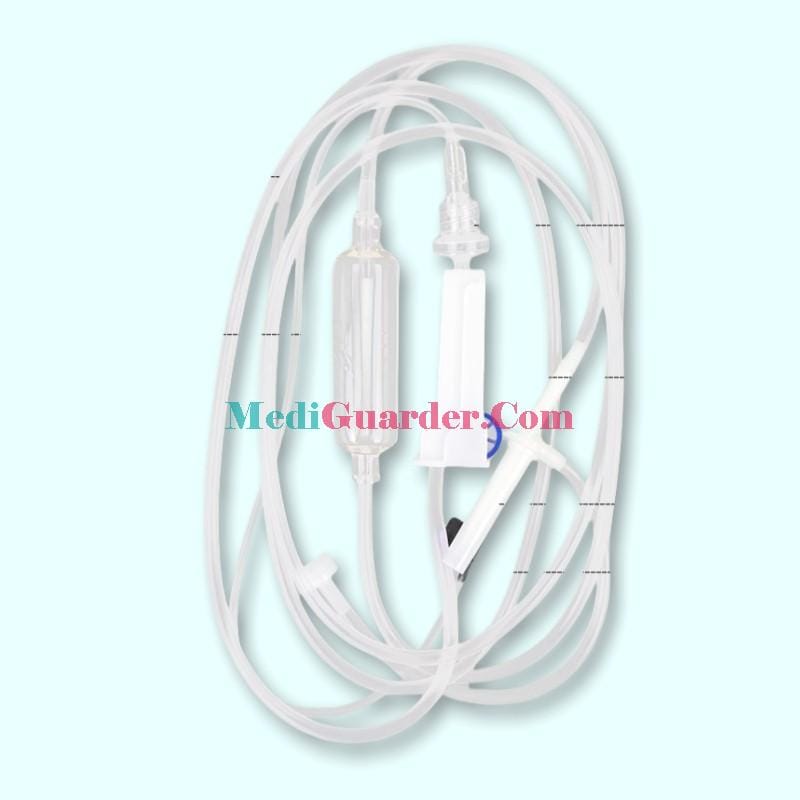Widespread Use and Emerging Issues of Disposable Infusion Sets
In the modern medical field, as a typical representative of disposable medical consumables, disposable infusion sets have been widely used in clinical treatment due to their advantages of convenience and safety. However, with the continuous increase in their usage, many problems exposed during the use process have become increasingly prominent. In particular, the risk of cross-infection of blood-borne infectious diseases and the proper disposal of disposable medical waste have become key challenges in medical safety and environmental protection.
Cross – infection Risks Caused by Improper Operation
During clinical use, improper operation of medical disposable infusion sets can easily lead to cross-infection of blood-borne infectious diseases. Some medical staff do not strictly follow the aseptic operation specifications during the operation process. For example, incomplete disinfection of the puncture site and loose connection of the infusion set may create conditions for the spread of pathogens. Once in contact with blood carrying viruses or bacteria, cross-infection may occur. For patients with blood-borne infectious diseases such as AIDS, hepatitis B, and hepatitis C, if the infusion set is used improperly, the virus can easily spread to other patients through the infusion equipment, which will not only pose a serious threat to the health of patients but also trigger a series of social problems.
Quality Concerns of Disposable Infusion Sets
In addition to the risk of cross-infection, the quality issues of medical disposable infusion sets cannot be ignored. Some inferior disposable infusion sets may have problems such as substandard materials and rough production processes. These problems not only affect the normal infusion process but may also lead to the release of harmful substances, causing potential harm to the physical health of patients. If the sealing performance of the infusion set is not good, it may lead to the leakage of the liquid medicine and affect the treatment effect. If the material contains harmful substances, long-term use may damage the liver and kidney functions of patients.
Consequences of Improper Disposal of Used Disposable Infusion Sets
Disposable infusion sets after use, as an important part of disposable medical waste, will also bring serious consequences if not properly disposed of. Random discarding or non – standard disposal will not only cause pollution to the environment but may also become a hidden danger of disease transmission. Some untreated infusion sets may be recycled by scavengers and flow into illegal channels, being reprocessed and utilized, thus triggering greater public health and safety problems. In addition, if there are no effective disinfection and harmless treatment measures during the treatment of medical waste, the pathogens carried in it may contaminate the soil, water sources, etc., posing a long – term threat to the ecological environment and public health.

Solutions for Safe Use of Disposable Infusion Sets
In order to effectively solve these problems, efforts need to be made from multiple aspects. First of all, medical staff should strengthen the training on the correct use and management of disposable infusion sets and strictly follow the aseptic operation specifications to ensure the safety of the infusion process. Before puncture, the patient’s skin should be thoroughly disinfected, and all components of the infusion set should be tightly connected to avoid situations such as liquid leakage. At the same time, medical institutions should strengthen the procurement management of disposable infusion sets, select products with reliable quality, and reduce the quality risk from the source.
Establishing a Sound Disposal System for Disposable Medical Waste
In terms of the disposal of disposable medical waste, a sound recycling and disposal system should be established. Medical institutions should strictly classify, collect, and seal the used disposable infusion sets according to relevant regulations, and hand them over to professional medical waste disposal institutions for harmless treatment. Relevant departments should also strengthen the supervision of the medical waste disposal industry to ensure that the treatment process meets environmental protection requirements and prevent the illegal inflow and secondary pollution of medical waste.
Conclusion: Ensuring Public Health and Safety
The safe use of disposable infusion sets and the proper disposal of disposable medical waste are related to the health of patients and the public health and safety of society. Only through comprehensive efforts such as strengthening the training of medical staff, strict quality supervision, and improving the medical waste disposal system can we effectively reduce the risk of cross – infection of blood – borne infectious diseases, reduce the harm of disposable medical waste to the environment, and provide a solid guarantee for the healthy development of the medical industry and the harmony and stability of society.
 China Disposable Medical Supplies, Medical Consumables Supplier
China Disposable Medical Supplies, Medical Consumables Supplier
